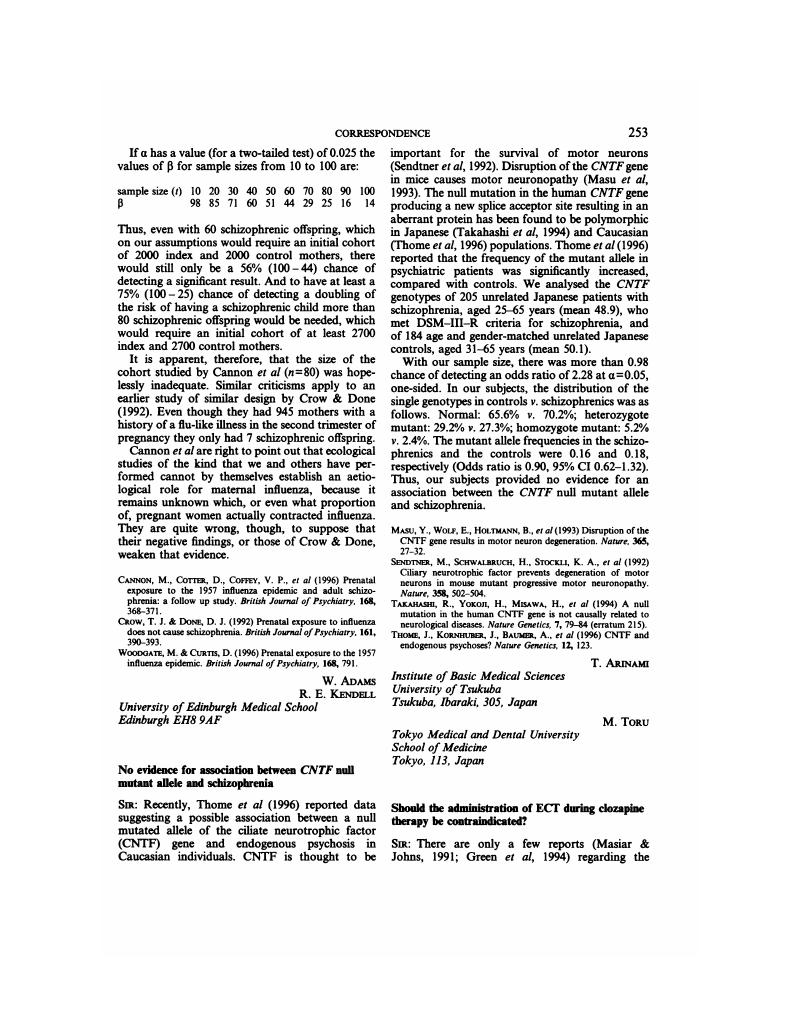Crossref Citations
This article has been cited by the following publications. This list is generated based on data provided by Crossref.
Nawa, H
Takahashi, M
and
Patterson, P H
2000.
Cytokine and growth factor involvement in schizophrenia—support for the developmental model.
Molecular Psychiatry,
Vol. 5,
Issue. 6,
p.
594.
Klempan, Timothy A.
Muglia, Pierandrea
and
Kennedy, James L.
2004.
Neurodevelopment and Schizophrenia.
p.
3.
Durany, Nuria
and
Thome, Johannes
2004.
Neurotrophic factors and the pathophysiology of schizophrenic psychoses.
European Psychiatry,
Vol. 19,
Issue. 6,
p.
326.
Lin, Pao-Yen
and
Tsai, Guochuan
2004.
Meta-analyses of the association between genetic polymorphisms of neurotrophic factors and schizophrenia.
Schizophrenia Research,
Vol. 71,
Issue. 2-3,
p.
353.
Durany, Nuria
and
Thome, Johannes
2005.
Factores neurotróficos y fisiopatología de las psicosis Esquizofrénicas.
European psychiatry (Ed. Española),
Vol. 12,
Issue. 2,
p.
69.
Nishiyama, Jun
Tochigi, Mamoru
Itoh, Shin
Otowa, Takeshi
Kato, Chieko
Umekage, Tadashi
Kohda, Kazuhisa
Ebisawa, Takashi
Kato, Nobumasa
and
Sasaki, Tsukasa
2006.
No association between the CNTF null mutation and schizophrenia or personality.
Psychiatric Genetics,
Vol. 16,
Issue. 5,
p.
217.




eLetters
No eLetters have been published for this article.